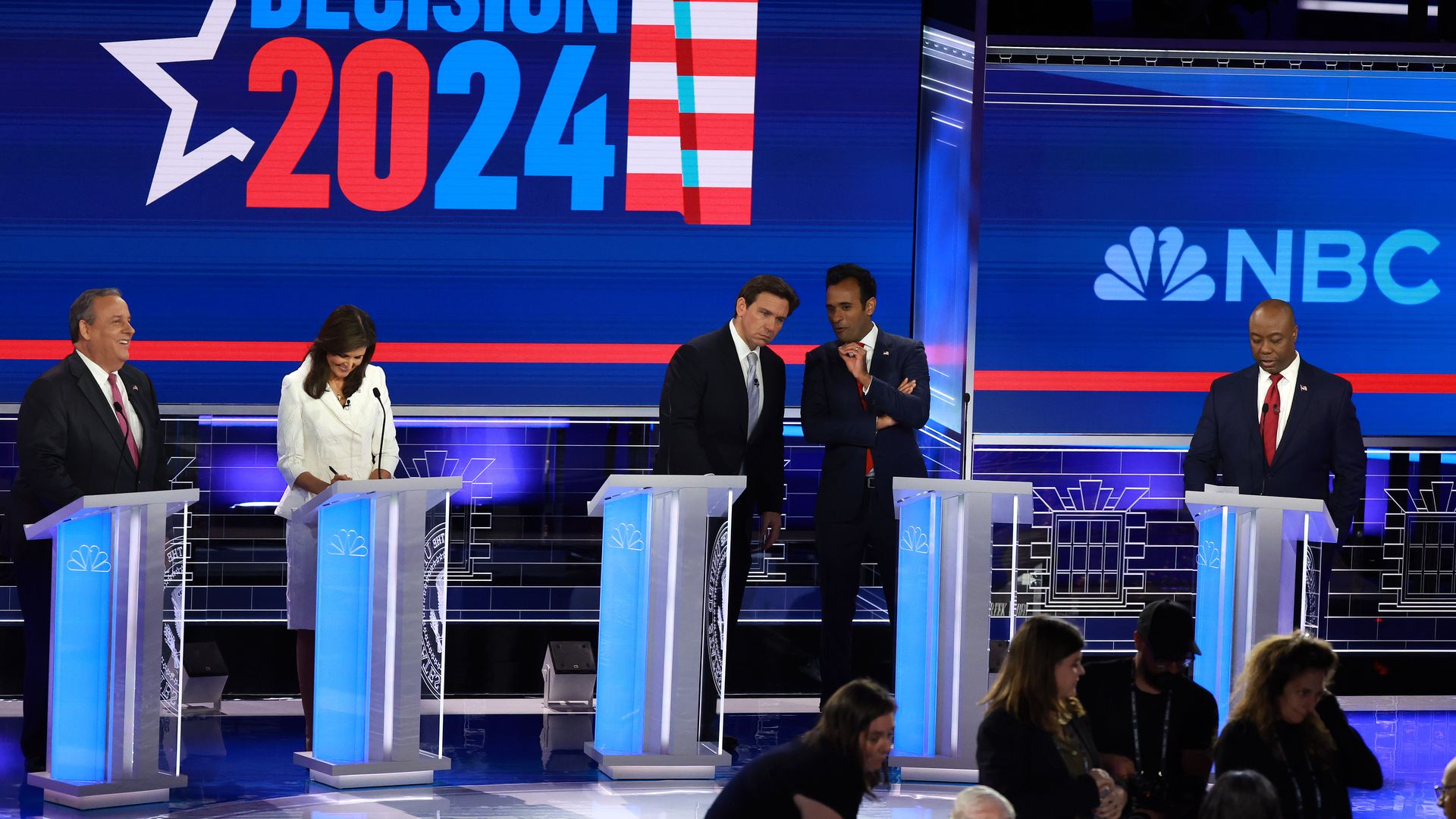Nov 8, 2023 - Politics & Policy
GOP presidential candidates face abortion questions after election losses
Add Axios as your preferred source to
see more of our stories on Google.

Republican presidential candidates at the primary debate hosted by NBC News in Miami. Photo: Joe Raedle/Getty Images
